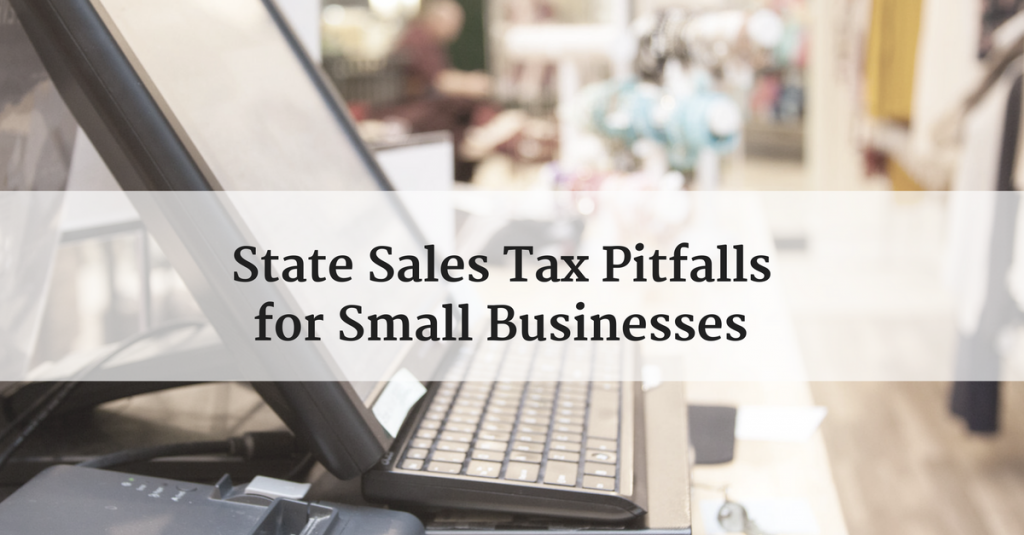As a small business owner, you know how important it is to collect the correct amount of sales tax and to file an accurate sales and use tax return. But, sales tax can be a complicated topic for many small business owners, which makes it more likely that mistakes will occur. This informative guide will break down some of the common tax pitfalls small businesses face and help you avoid costly sales tax errors.
Understanding Sales Tax Basics
One of the best ways to get things right when it comes to sales and use tax is to be clear about the difference between sales tax and use tax. Your business collects sales tax on all non-exempt retail purchases your customers make. Retail purchases include all goods and some services.
Your business pays use tax on items you buy for use in Illinois. That means if you buy items from vendors in other states and they fail to collect at least 6.25 percent sales tax, you are responsible for paying use tax to the Illinois Department of Revenue.
Now that you’re clear on the difference between the two taxes, let’s look at 6 common pitfalls that cause sales tax headaches for small businesses.
6 Most Common Sales Tax Pitfalls
- Not Understanding Nexus: It’s an intimidating word for many, but nexus just means you have a “significant presence” in a state. You have a sales tax nexus in Illinois if you have an office, warehouse, or other place of doing business within the boundaries of the State. You also have an Illinois nexus if you have an employee, contractor, agent, or other representative of your business who helps you conduct your business in the state. A third-party affiliate may also meet the nexus test. If you have sales tax nexus in other states, you are responsible for filing sales and use tax returns in those states as well. The test is similar, but not necessarily identical, in each state that collects sales tax. If you are not sure whether you have a sales tax nexus in a particular state, you should seek legal advice.
- Failing to Apply for a Sales Tax Permit: If you have sales tax nexus in a state, you must apply for a sales tax permit in that state. In most states it is against the law to collect sales tax without a permit.
- Collecting the Wrong Amount of Sales Tax: As an origin-based sales tax state, Illinois requires that businesses located in Illinois collect sales tax based on the rate that applies in the municipality where the business is located. TaxJar offers a quick calculator that makes it easy to calculate the tax in your area. If your business is located outside of Illinois but you have sales tax nexus in Illinois, the state requires that you pay tax based on the tax rate that applies in the buyer’s location. For example, if your buyer is located in Berwyn, IL, you would collect sales tax based on the tax rate in Berwyn.
- Tax-Exempt Status: If you conduct business with charitable organizations, don’t just take their word for it that they have tax-exempt status. Ask for documentation to that effect and keep it on file.
- Failing to Set Aside Sales Tax Payments: As a small business owner, it’s easy to use all incoming revenues to meet your daily expenses in order to keep the business going. However, if you don’t make a structured plan to set aside the sales tax you collect, you could end up scrambling to pay a hefty tax bill each month. If you have misallocated resources and don’t have the money to pay the taxes you owe, you face steep penalties of up to 20 percent of your tax bill.
- Selling on Amazon: If your business sells products through Amazon and stores inventory in an Amazon fulfillment center, then you have nexus in the state where the fulfillment center is located. It is essential that you find out where your goods are being stored so you can comply with state tax laws there.
Where to Find Help for Your Sales & Use Tax Questions
Despite addressing the six most common pitfalls above, we realize there are still many questions small business owners have when it comes to sales and use tax. To avoid making mistakes, especially if you conduct most of your business online, we encourage you to seek a local tax attorney or other qualified tax advisor who understands the ins and outs of sales tax requirements and can guide you through the specifics for your city, county, and state.
Here are some guidelines that will help you find a reputable tax advisor:
- Search for a professional with certifications. If you opt to go with an attorney, look for one who has an LLM in Taxation and focuses his or her practice exclusively on tax matters.
- Make sure the tax attorney you choose is in good standing with the Illinois Bar Association and the Better Business Bureau.
- Find out how much experience the attorney has dealing with local, state and federal tax authorities.
- Be sure the tax attorney you select understands how your business works in addition to being knowledgeable about taxes.
- Most importantly, choose someone who communicates in way you can understand and is available to answer all of your questions so you feel empowered to run your business in compliance with local, state, and federal tax guidelines.
When it comes to sales tax compliance, it is always better to be safe than sorry. We hope the information we have presented here gives you a better understanding of your sales tax obligations and will help you find the right professional to guide you as your small business continues to grow.

